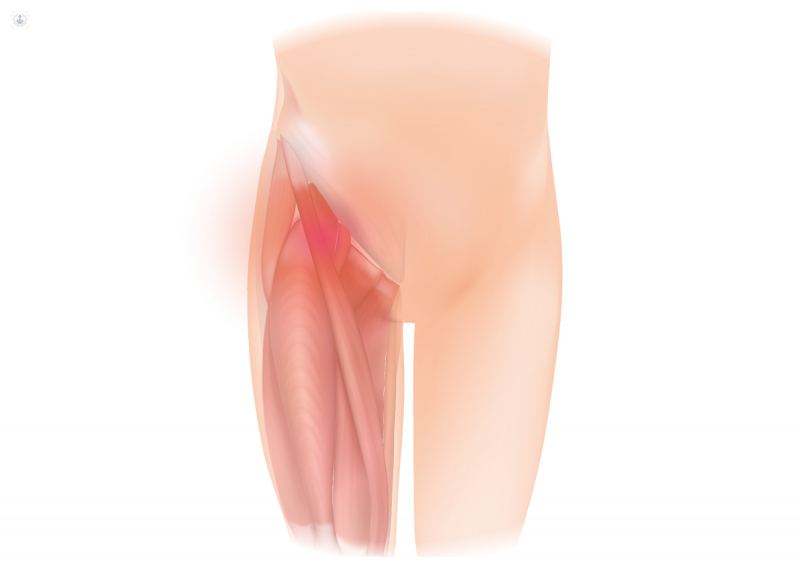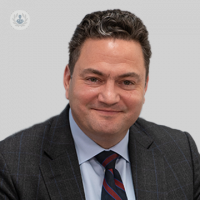Hip pain, groin pain and what causes them
Written in association with:Hip and groin pain is no laughing matter, and it is not a problem that is limited to elderly people. Sports injuries, accidents, and many other factors can lead to pain, so we asked consultant orthopaedic surgeon Mr Dean Michael to tell us more.

What causes hip and groin pain?
There are a number of causes of hip pain. These can be related to specific problems with the hip joint itself, to the muscles and tendons around the hip, or, in fact, to referred pain from the back. Pain around the lateral aspect and side of the hip is often related to either bursitis or tendinopathy. Pain in the groin itself can be related to hip flexor tendon problems or adductor tendon issues (often referred to as a groin strain). Pain which is often described by the patient as coming from the hip is often related to the lower back, while pain felt deep in the groin is, in fact, more typically from the hip joint itself.
Groin pain, if related to the hip joint, is either as a result of arthritis (more commonly in older patients) or can be related to tears to the cartilage rim of the hip socket (the labrum). Tears to the labrum may occur as a result of specific twisting or sporting injury, or as a result of a process called impingement. In impingement, the patient’s hip has formed either with a particularly deep socket or with a bump on the front of the hip bone. As the leg is brought into flexion the front of the hip bone rubs or impinges upon the rim of the socket and over time this can cause tears to the cartilage rim (labrum) or damage to the cartilage surface of the joint.
Cartilage injuries of the hip can particularly occur if there is forced or deep flexion particularly when associated with a twisting lesion. Typically this can occur in repetitive flexion or lunging sports, such as skiing, rowing, or squash.
One of the most common problems causing hip and groin pain are tendon injuries of the hip. These often occur during sport.
When should someone see a specialist about pain?
Most tendon and ligament injuries about the hip settle with conservative treatment in the form of anti-inflammatory tablets, rest, and physiotherapy. If symptoms persist beyond six weeks then it is advised to seek a specialist opinion so that investigations can be undertaken to exclude structural damage such as a cartilage injury or a torn labrum, and a diagnosis of impingement (femoralacetabuluar impingement (FAI)) can be made. The importance of this condition is that it is thought to be the precursor to the development of arthritis and so if symptoms persist it is advised to identify the problem and treat it.
How is the cause of hip/groin pain diagnosed?
The causes of hip pain can often be diagnosed by a thorough clinical examination, but investigations such as a CT or, more commonly, an MRI arthrogram of the hip will be undertaken. A CT scan gives very good information as to the shape and bony structure of the hip joint but MRI arthrogram (which involves injection of dye into the hip) is the gold standard test for identification of cartilage injuries around the hip.
If you are concerned with hip pain, visit Mr Dean Michael’s profile to book an appointment.



